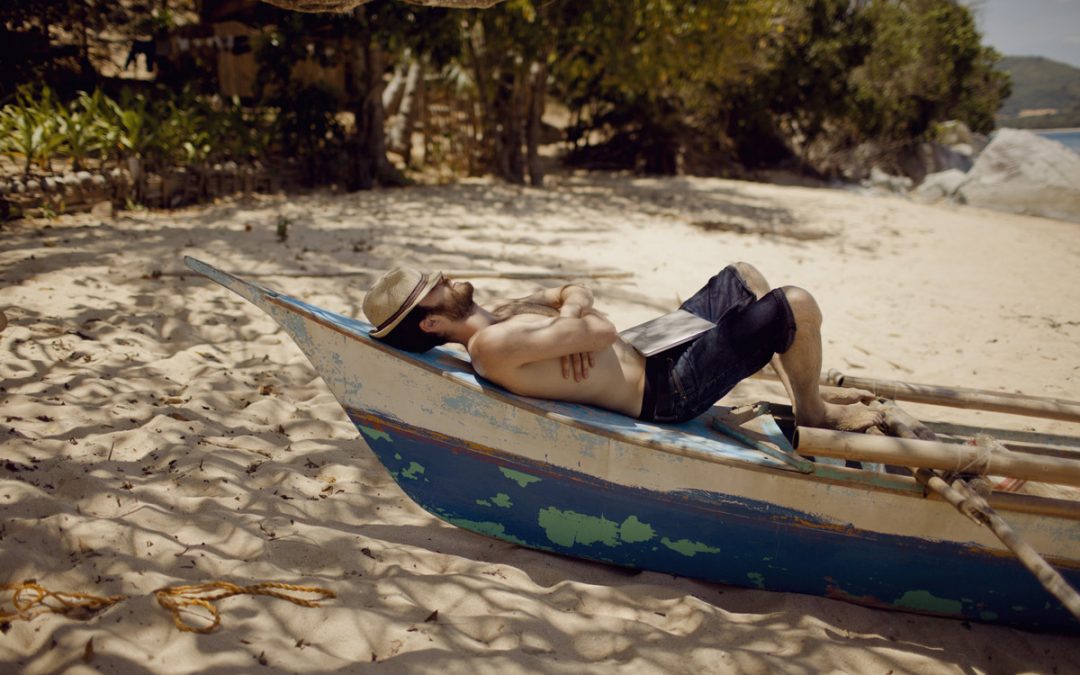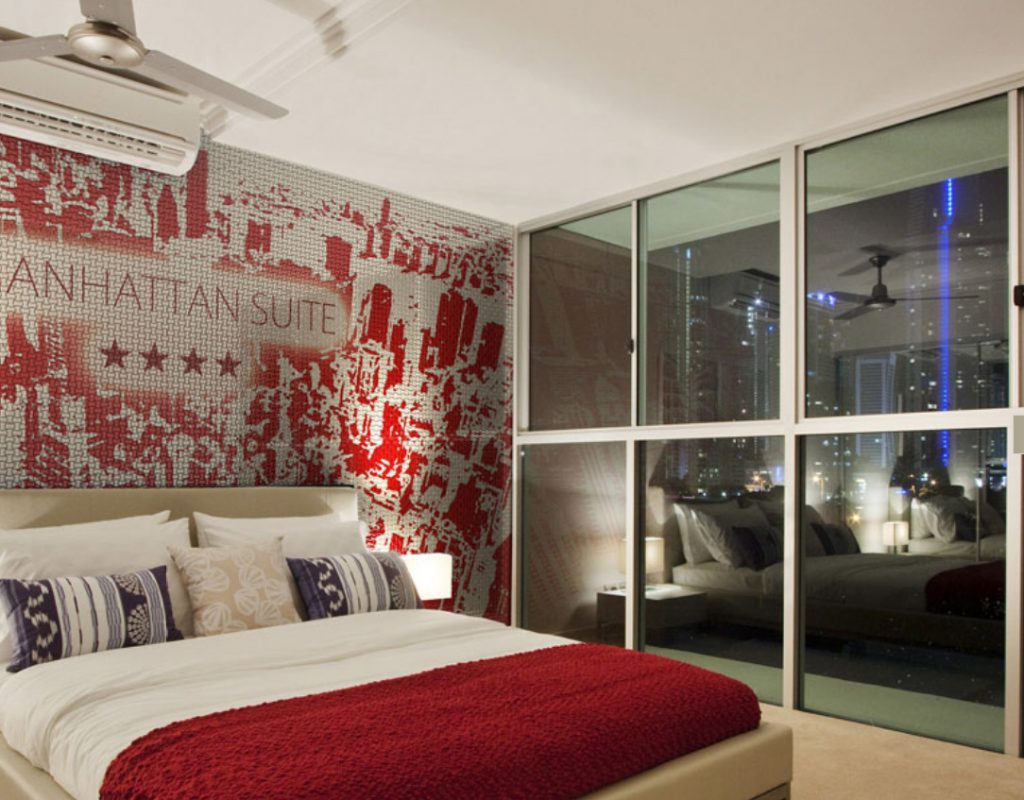by Ryan Koper | Project Manager, Grabinski Group
The hospitality industry is accustomed to the up-and-down nature of the business. After all, every type of travel from leisurely tourism to business travel ebbs and flows with the heartbeat of the global economy. When there’s an uptick in the economy, hotels experience higher occupancy rates, and vice versa when slowdowns and recessions occur.
To add to this volatility, there’s been a growing threat facing the hospitality industry: Airbnb. This current darling of the media is garnering greater attention from the hospitality industry, but not for the reasons you might think. While the number of guests using Airbnb has grown from 47,000 in 2010 to 17 million in 2015, the hotel industry isn’t facing a serious challenge. That is, not yet anyway.
US hotels are still experiencing growth in the industry’s most important factor: revenue per available room, or RevPAR. The industry in the US saw its RevPAR rise 6.2% from 2014 to 2015, growing from $74.11 to $78.71. Expanding that metric to cover the first half of the decade 2010-2020, RevPAR has grown immensely from $58.45 back in 2010.
It’s not that Airbnb is stealing all of the hotel industry’s guests (again, at least not yet), but the type of guests that Airbnb is attracting: Millennials. No matter how you slice it, Millennials are the most important target population for the hospitality industry. Some 82% of Millennials traveled in the last 12 months, according to Mintel, compared to just 75% of the overall US population. Millennials are now the biggest generation; they travel more, and they’re expectations while traveling are different.
THE IMPACT OF AIRBNB TO DATE
As mentioned above, the hotel industry is still very healthy based upon one of its own key analytical factors, RevPAR. However, that doesn’t mean Airbnb isn’t taking a bite out of the proverbial apple in the hotel industry. HVS Consulting & Valuation has the raw numbers that paint the full picture of the impact Airbnb has had to-date on the hotel sector.
First and foremost, hotels are losing roughly $450 million annually in direct revenue as guests flock to Airbnb. In the one-year period from September 2014 to August 2015, there were 480,000 hotel rooms nights booked compared to more than 2.8 million rooms through Airbnb. It is estimated that Airbnb could reach 5 million rooms per year booked by 2018.
The damage extends far beyond just the revenue lost directly as a result of vacant rooms. The shift toward Airbnb has cost 2,800 hospitality industry jobs with an economic impact of $200 million in lost income for hotel employees. Further, hotels are experiencing lost revenue on food and beverage service to the tune of $108 million in total. Federal and state governments are losing out as well, with tax on hotel stays falling with every lost customer.
While executives from Airbnb insist that their service can live alongside the traditional hotel industry, with Nick Papas (director of public affairs at Airbnb) insisting “we’ve always believe that for us to win, no one has to lose,” there is an emerging trend the hotel industry should consider. If you can’t beat Airbnb, why not join them by converting rooms or entire floors to Airbnb-quality accommodations?
CAN’T BEAT EM? JOIN EM!
Some brands in the hotel industry have read the writing on the wall and are adjusting to the changing trends in the hospitality industry. The first shift in this direction has come in the form of hotels using Airbnb’s service to book individual rooms. One of the greatest points of loss for the hospitality industry is unfilled rooms. When no guests are using a room, no money is coming in.
While the so-called traditional booking sites, such as Expedia and Priceline command billions of dollars in revenue in the market ($5.8 billion and $8.4 billion respectively in 2015), Airbnb is often a less expensive option for hotels and gives them an inside channel to Millennial travelers.
For example, Expedia and Priceline charge fees of anywhere from 10% to 25% per reservation booked on their service, and this comes out of the hotel’s pocket, not the guests. Airbnb, by contrast, charges just 3% host fees for each reservation. This means that hotels can save a lot of money and fill rooms by using Airbnb to rent out those empty rooms.
Before you get too excited though, there’s a catch to all of this. While some hotels are finding success using Airbnb to fill rooms, these are often boutique hotels or the bed-and-breakfast establishments that helped Airbnb build its brand in the early years. To compete with Airbnb, it’s not good enough to just fill their site with hotel listings. The hospitality industry needs to make a more significant change to attract the Millennials using the service. For them, it’s not about the price, but rather the experience.
ATTRACTING MILLENNIALS
Millennials aren’t like generations that have come before in terms of expectations on the road. Gone are the days when flatscreen TVs and cable was a selling point. Millennials have an entirely different set of expectations that traditional hotels have to adjust to if they are going to truly compete.
For example, US News offers fascinating insight into five ways that hotels can successfully engage with this new generation of travelers:
- Tailored Technology: Millennials aren’t content to just book a place to stay using their mobile device, they want fast and reliable internet access, complimentary digital content (newspapers and magazines), and even the ability to book a dinner reservation, ask for more towels, or request room service through their devices.
- Communal Spaces: Front desks are becoming a thing of the past as hotels use those large open spaces to create a communal area for guests to mingle, dine, grab food to go, or get a drink.
- Personalized Service: The new generation wants to feel like their visit is personalized to their needs, with hotels such as Aruba’s Bucuti & Tara Beach Resorts allowing guests to check in from mobile devices in advance. They are then met curbside by a personal concierge who leads them to their room and completes check-in on a tablet.
- Value-Add Amenities: The same resort in Aruba is now offering guests more than your typical mini-bar in the room. Guests enjoy air dehumidifiers, air purifiers, cell phone chargers, microwaves, mini fridges, and even a complimentary iPad during their stay.
- Improved Fitness Facilities: No generation has been more obsessed with health and fitness, and hotels need to respond. Everything from complimentary bike rentals to yoga mats in each room make it easier for guests to get the workout they want. Some hotels have gone to even greater lengths, hiring fitness instructors to lead guests on 3- and 5-mile runs in the local area.
TRUE TRANSFORMATION IS REQUIRED
In order to compete with Airbnb, it takes more than a few dedicated rooms to lure in Millennials that would otherwise turn to Airbnb for service. Success requires a total transformation that comes, for a select few so far, in the form of converting entire floors to Airbnb-style service. This trend goes beyond simply listing empty rooms on Airbnb to adopting the very mentality that made Airbnb a success in the first place.
Though it is still a small trend, one of the nation’s largest hotel chains recently converted 3 floors in one of its major destination cities to Airbnb-style rooms. Remember that Millennials aren’t in this for the lower price, they want a different experience. Design is a huge factor in this difference. Instead of the uniform branding and color schemes associated with the larger name, these hotels are opting for design that directly appeals to the Millenial in ways that are “hip, cool, and new.” Brands like Marriott and Radisson are revamping their image to appeal to Millennials with offshoot brands aimed directly at this generation of travelers.
Because of this new demand in experience-based vacation stays, there are groups on the manufacturing side ready to work with hotel brands. The Grabinski Group is among the few companies working in the industry that has helped hotel brands revamp their hotel rooms and entire floors to create spaces Millennials are interested in renting. Grabinski specializes in the production and installation of custom cabinetry, furniture, and accent finishes that recreate the spaces in your hotel to develop a look and feel that is more attractive to Millennial travelers and Baby Boomers alike.
More importantly, the Grabinski Group can get the job done quickly so your new rooms are available for rent faster. Owner of the Grabinski Group, Zach Grabinski, notes that “we have quite a number of vendors that manufacture in the US, which allows for shorter lead times. We also can put together install teams anywhere in the country.” The group recently converted rooms at an old hostel in Chicago into an upscale, hip hostel that is already attracting Millennial travelers from around the globe.
With the help of industry partners like Grabinski Group, your hotel can transform floors into modern spaces that are attractive to Millennial travelers with shorter lead times. Dedicating entire floors to Airbnb creates diversity in your brand, appealing to both traditional travelers who rely on AARP and AAA discounts for standard rooms, while providing the atmosphere, personalized experience, and modern amenities that Millennials are looking for within a particular sector of your hotel.
For more information or to learn more about how the Grabinski Group can help you with your next hospitality project please contact us.
SUBSCRIBE TO OUR NEWSLETTER
Stay updated on Grabinski Group news, such as our newest product offerings and specials, featured projects, and product spotlights.


